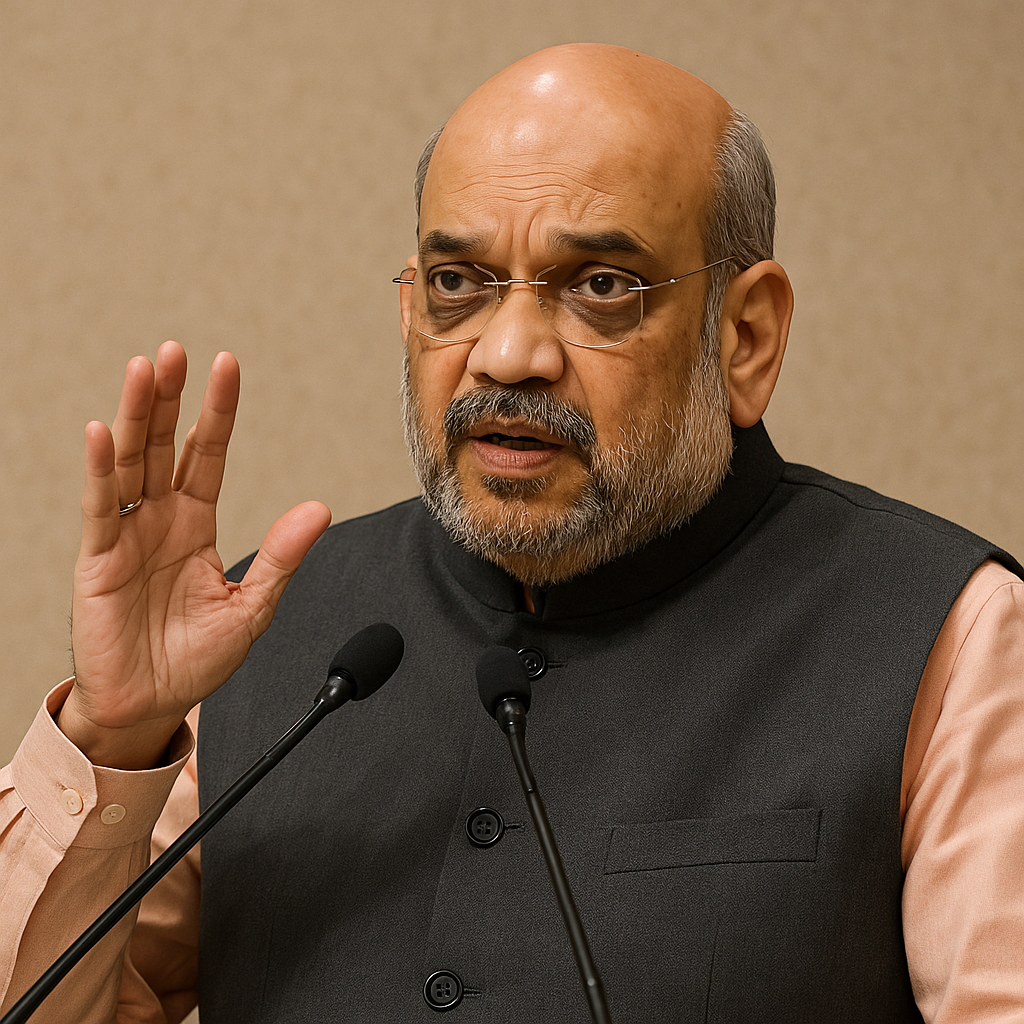Amit Shah Reviews Implementation of New Criminal Laws in Puducherry
Despite this progress, the Home Minister emphasized the need for accelerated efforts to ensure the timely and full implementation of the reforms.

- Country:
- India
Union Home Minister and Minister of Cooperation, Shri Amit Shah, chaired a high-level review meeting in New Delhi today to assess the implementation status of the three newly enacted criminal laws in the Union Territory of Puducherry. The meeting was held in the presence of Puducherry Lieutenant Governor Shri K. Kailashnathan and other senior functionaries from the central and territorial administrations.
The meeting brought together key stakeholders, including the Home Minister of Puducherry, the Union Home Secretary, the Chief Secretary and Director General of Police of the UT, the Director General of the Bureau of Police Research and Development (BPR&D), and the Director of the National Crime Records Bureau (NCRB). Senior officials from the Ministry of Home Affairs (MHA) and the Puducherry administration were also in attendance.
Recognition for Progress and Call for Swift Action
In his opening address, Shri Amit Shah commended the Puducherry administration for its earnest efforts toward the implementation of the new criminal laws enacted under the leadership of Prime Minister Shri Narendra Modi. He noted that the UT had shown commendable initiative in aligning its legal and institutional mechanisms with the provisions of the updated legislation.
Despite this progress, the Home Minister emphasized the need for accelerated efforts to ensure the timely and full implementation of the reforms. He laid special emphasis on the importance of language accessibility and the use of technology in law enforcement and judicial processes.
FIRs to be Registered in Tamil, Translations for Wider Access
One of the critical directions issued by Shri Shah during the meeting was that First Information Reports (FIRs) in Puducherry must be registered exclusively in Tamil, the region’s official and most widely spoken language. However, provisions must be made to make translated versions available to individuals who require them in other languages, ensuring broader accessibility and legal transparency.
Strengthening Forensic and Legal Processes
Highlighting the critical role of technology in the new criminal justice framework, Shri Shah called for immediate integration of systems like e-Summons, e-Sakshya (digital evidence collection and storage), and Nyaya Shruti (court and legal digitization tools). He urged that these reforms be put into full operation without delay.
He also directed that all arrested individuals' fingerprints be systematically captured and recorded into the National Automated Fingerprint Identification System (NAFIS), thereby enhancing the accuracy and scope of criminal tracking databases.
Moreover, the Home Minister made it clear that the responsibility for providing legal advice in criminal cases should rest solely with the Director of Prosecution (DoP), thereby streamlining legal opinions and reducing procedural delays.
Periodic Monitoring and Accountability Measures
To ensure consistent progress, Shri Amit Shah laid down a robust monitoring framework. He stated that the Chief Secretary and the Director General of Police of Puducherry should conduct weekly reviews of the implementation status. In addition, the Home Minister himself would hold a review every 15 days, while the Lieutenant Governor would carry out a monthly evaluation. This multi-tiered review mechanism is intended to maintain momentum and ensure any bottlenecks are swiftly addressed.
National Significance of Puducherry’s Role
Puducherry’s progress in implementing these new laws holds significance beyond its borders, serving as a model for other Union Territories and states in the country. The new laws represent a comprehensive overhaul of colonial-era criminal statutes, aiming to make India’s criminal justice system more efficient, transparent, and citizen-centric.
The meeting ended on a note of resolve, with all stakeholders reaffirming their commitment to Prime Minister Modi’s vision of a reformed criminal justice system and vowing to make Puducherry a leading example in this transformative journey.










